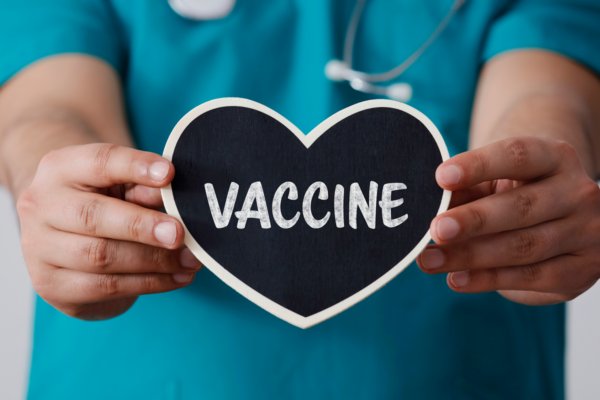COVID-19 vaccines are safe and effective.
You may have side effects after vaccination. These are normal and should go away in a few days.
It typically takes two weeks after vaccination for the body to build protection (immunity) against the virus that causes COVID-19. You are not fully vaccinated until 2 weeks after the 2nd dose of a two-dose vaccine or two weeks after a one-dose vaccine.
FAQ
Will COVID-19 vaccination help keep me from getting COVID-19?
Studies show that COVID-19 vaccines are effective at keeping you from getting COVID-19. Getting a COVID-19 vaccine will also help keep you from getting seriously ill even if you do get COVID-19. Early data show the vaccines do help keep people with no symptoms from spreading COVID-19, but we are learning more as more people get vaccinated. Vaccines will work with your immune system so it will be ready to fight the virus if you are exposed.
Is one of the COVID-19 vaccines proven to be safer than the other?
All COVID-19 vaccines go through the same process to receive emergency use authorization (EUA) from the Federal Drug Administration (FDA). There is no data to suggest one vaccine is safer than another. At this time CDC is not recommending for certain groups to receive one vaccine over another. The recommendation is to receive the vaccine that is currently available to you.
Are the side effects different for each vaccine?
No matter what vaccine you get, it is normal to have mild side effects like fever, chills, fatigue, and headache as well as pain and swelling in the arm where you received the vaccine. This is your immune system learning how to fight the virus, and indicates the vaccine is working.
If I already had COVID-19, should I get vaccinated? Shouldn’t I be immune?
Yes, you should still get the COVID-19 vaccine, even if you have had COVID-19. There is not enough information currently available to say if or for how long after infection someone is protected from getting COVID-19 again; this is called natural immunity. Early evidence suggests natural immunity from COVID-19 may not last very long, but more studies are needed to better understand this. People who have had COVID-19 can still get a vaccine. CDC recommends getting it after you have recovered.
Is the vaccine safe?
Safety is the first priority in vaccine authorization or approval. The FDA has authorized the emergency use of each of the three COVID-19 vaccines after determining the vaccines meet FDA requirements. And it’s important to know that all three of the authorized COVID-19 vaccines were proven to be safe and effective in reducing the risk of severe illness, hospitalizations and death as caused by the virus. While the COVID-19 vaccines are being developed as quickly as possible, routine processes and procedures remain in place to ensure the safety of any vaccine authorized or approved for use.
Can this vaccine give me COVID-19?
No. This vaccine gives your body a code which helps it recognize the virus, so your body can fight it off in the future.
If I have an underlying condition, can I get the vaccine?
People with underlying medical conditions can receive a COVID-19 vaccine as long as they have not had an immediate or severe allergic reaction to a COVID-19 vaccine or to any of the ingredients in the vaccine. Vaccination is an important consideration for adults of any age with certain underlying medical conditions because they are at increased risk for severe illness from COVID-19.
I don’t trust the vaccine. Why should I get it?
Getting a COVID-19 vaccine can prevent you from getting the virus and protect others around you. The vaccine has been found in clinical trials to be very good at in preventing COVID-19 infections, and vaccine side effects are generally mild, including fatigue, headache and sometimes fever. These effects are temporary.
Do the COVID-19 vaccines contain microchips?
The vaccines do not contain microchips or any other sort of device. It is impossible for a microchip to be placed in a vaccine.
How can I get my COVID-19 vaccine?
If you are interested in receiving the COVID-19 vaccine reach out to your Supports Coordinator or call the R2AAA vaccine hotline for help scheduling.
Jackson County: (517) 592-1976
Lenawee County: (517) 592-1662
Hillsdale County: (517) 592-1705

